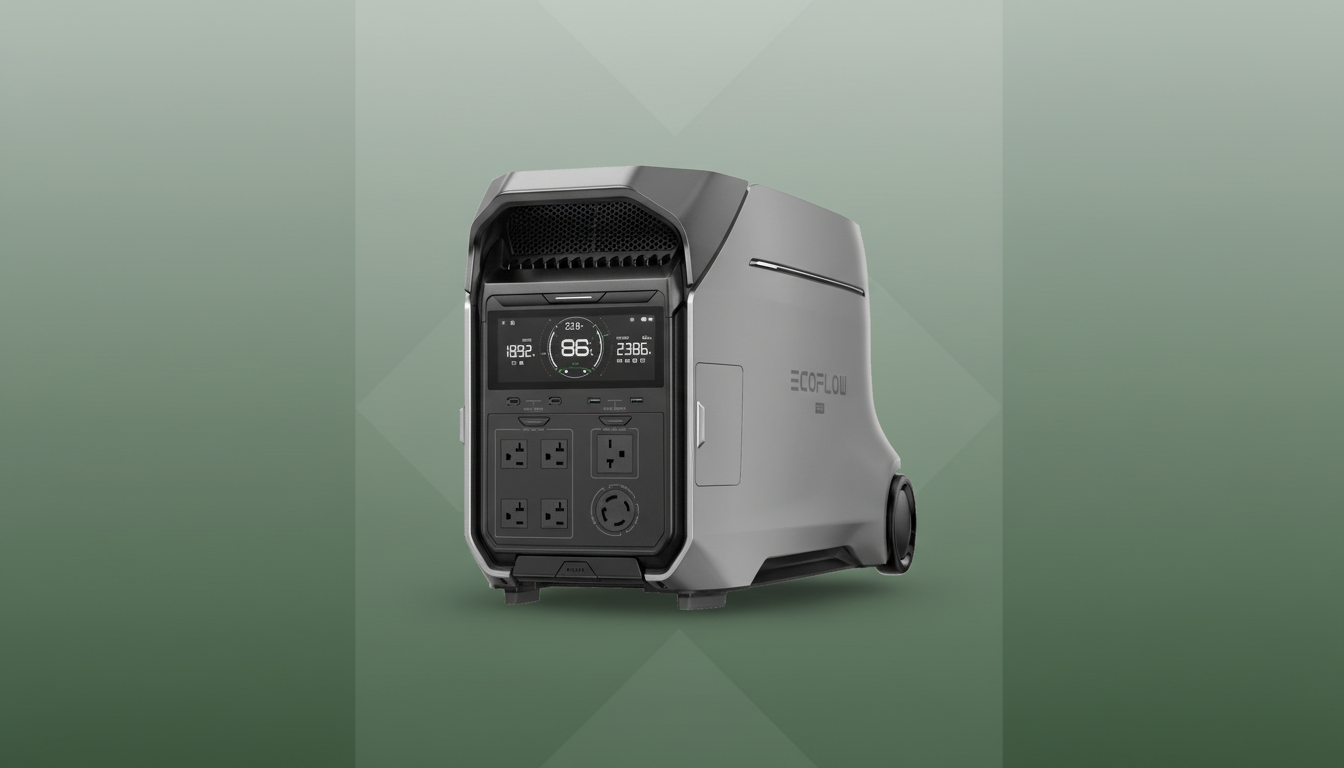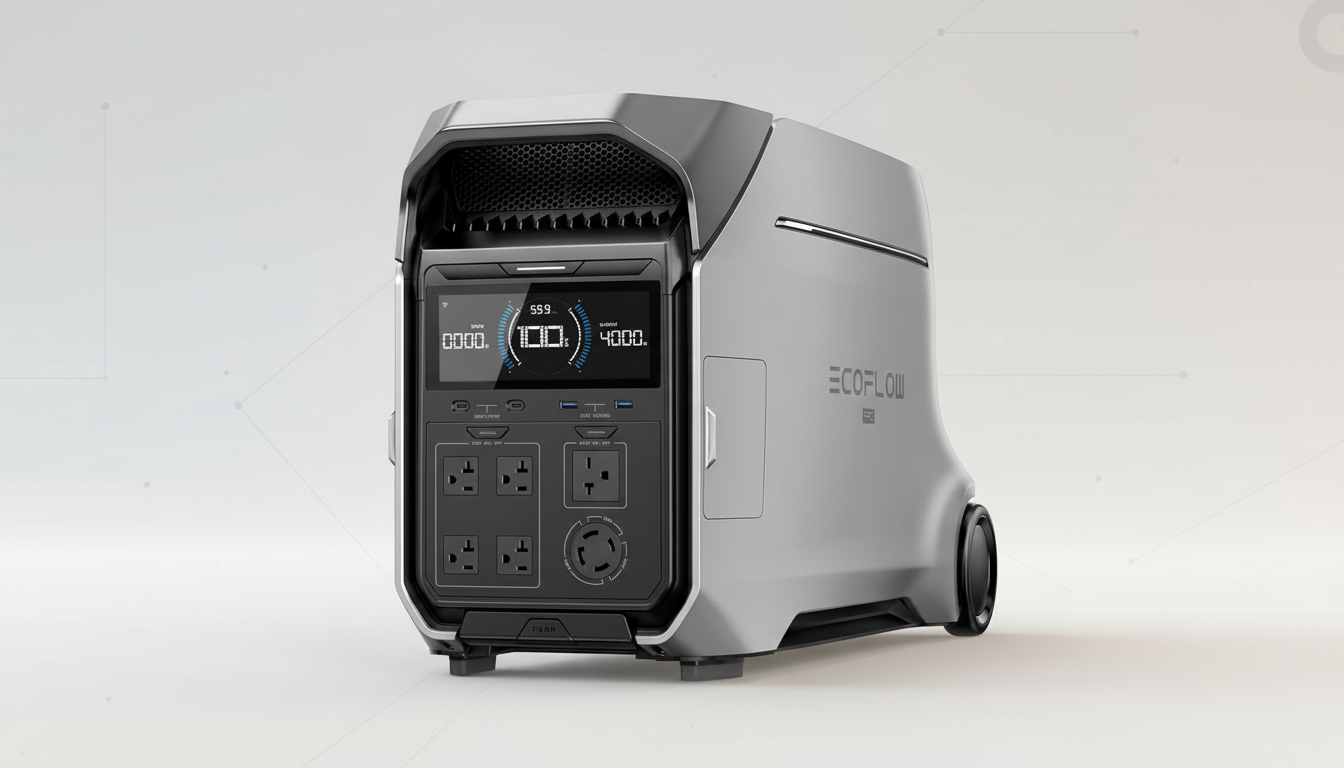One of the best portable power deals we’ve seen all year just dropped: The EcoFlow Delta Pro 3 is on sale for $3,599 (was $4,099), with $500 off as well as a freebie bonus that includes your choice of qualifying solar panel or smaller power station at checkout. For those looking for serious home backup or off-grid functionality, this is a rare opportunity to get a flagship unit at significant savings.
Why this EcoFlow Delta Pro 3 deal is a great value now
The 4kWh base unit and optional 4kWh expansion battery for a total capacity of 8kWh works with the Delta Pro 3, with a maximum power output of up to 4,000W, providing output in both 120V and 240V. That mix is designed for the kind of usable household loads that come to mind — refrigerators, sump pumps, power tools, and even some 240V circuits if included properly. You’re not just keeping phones alive; you’re keeping a home running.
- Why this EcoFlow Delta Pro 3 deal is a great value now
- What the EcoFlow Delta Pro 3 can power during outages
- Charging and expansion options for EcoFlow Delta Pro 3
- How the EcoFlow Delta Pro 3 compares with key rivals
- Who should take advantage of this EcoFlow Delta Pro 3 sale
- Key caveats before you check out with this deal
- Bottom line: is the EcoFlow Delta Pro 3 deal worth it?

Context matters. The U.S. Energy Information Administration has said to expect longer-length outages during extreme weather events over the past few years, while NOAA’s climate data indicates an increase in billion-dollar disasters. For many homes, a high-capacity inverter-based system is not a luxury — it’s a resiliency tool. A $500 drop on a high-capacity kit is the type of delta that will push buyers off the fence.
What the EcoFlow Delta Pro 3 can power during outages
With 8kWh at your disposal, you can power through multi-hour outages without triage-level sacrifices. As a concrete example, even a pretty beefy full-size refrigerator uses something in the 150W to 250W range when cycling, so you’re getting at least well over a day’s worth of cold food safety out of your powerwall plus some lights and networking gear. Throw in a 1,500W space heater and you’ll have 4–5 hours of continuous heating from the battery alone (more depending on your usage pattern).
Devices like CPAP machines (typically 30–60W), a home internet router (10–20W), LED lighting, and phone or laptop charging barely make a dent in the capacity. With 4,000W of output, it can provide plenty of power to run lights and charge your battery bank, with a nearly 3x surge rating making it the most powerful inverter you will probably need, all while providing clean power without gas fumes or noise.
Charging and expansion options for EcoFlow Delta Pro 3
A notable feature among the Delta Pro series is the range of options for how you recharge the battery — rapid AC charging using a wall outlet, charging on the road via a vehicle, and solar input to recharge off the grid.
Pair the system with portable panels (especially if you’re getting one for free) and it will provide extra autonomy during long blackouts and help lessen reliance on grid power after the storm passes.

The 120V/240V capability of this machine allows for powering some home circuits when connected via a transfer switch. That’s not a plug-and-play decision — consult with a licensed electrician and you should, of course, adhere to local code and NEC requirements — but it’s a safer, more integrated solution than running daisy-chained extension cords. FEMA’s advice for emergency power planning mirrors this: a professional-grade transfer solution is the best choice, especially in residential situations.
How the EcoFlow Delta Pro 3 compares with key rivals
Within the high-capacity segment, shoppers are likely to cross-shop Bluetti and Jackery. And Bluetti’s modular systems can scale up huge, while Jackery’s 3kWh-class units are popular for their portability and ease of use. The Delta Pro 3’s offer is the combination of ample 8kWh capacity in a containerized pair, a meaty 4,000W output, and no fiddling with separate inverters to support native 240V power. If your house can use the capacity and higher-voltage flexibility, that combination is tough to beat in this price range.
Another differentiator is ecosystem maturity. Accessories, app control, and a track record with the widely used Delta Pro line reduce some guesswork when first-time buyers shop from EcoFlow. Consumer Reports and off-grid community forums always stress the significance of reliable firmware, transparent monitoring, and easy access to expansion parts — areas where larger ecosystems can help.
Who should take advantage of this EcoFlow Delta Pro 3 sale
Homeowners in storm-prone areas, RV enthusiasts looking to tuck in for a quiet night with power, contractors running tools at job sites where outlets are scarce, and creators on the go shooting on location will all gain from this technology. If you’ve been tracking prices for a battery system beefy enough to do more than keep devices topped up, this discount plus a bonus accessory trims the overall cost of what is a truly whole-home-adjacent setup.
Key caveats before you check out with this deal
This is substantial hardware. It’s also really heavy — rolling wheels and a telescoping handle assist, but consider where the unit will live and how you’ll be moving it. If you plan to power 240V appliances or backfeed circuits, prewire with a licensed electrician. Make sure to also double-check what the freebie is and verify they add the qualifying item to your cart so the promotion is applied at checkout. Return policies and freight particulars start to matter with gear this big.
Bottom line: is the EcoFlow Delta Pro 3 deal worth it?
$500 off the EcoFlow Delta Pro 3, along with a free portable solar panel or smaller power station, is a strong point in time to buy into high-capacity backup power. At 8kWh storage, 4,000W output, and 120/240V support, this is a serious deal on resilience at home and on the go — and meaningful money saved on a system built for those moments that matter.

